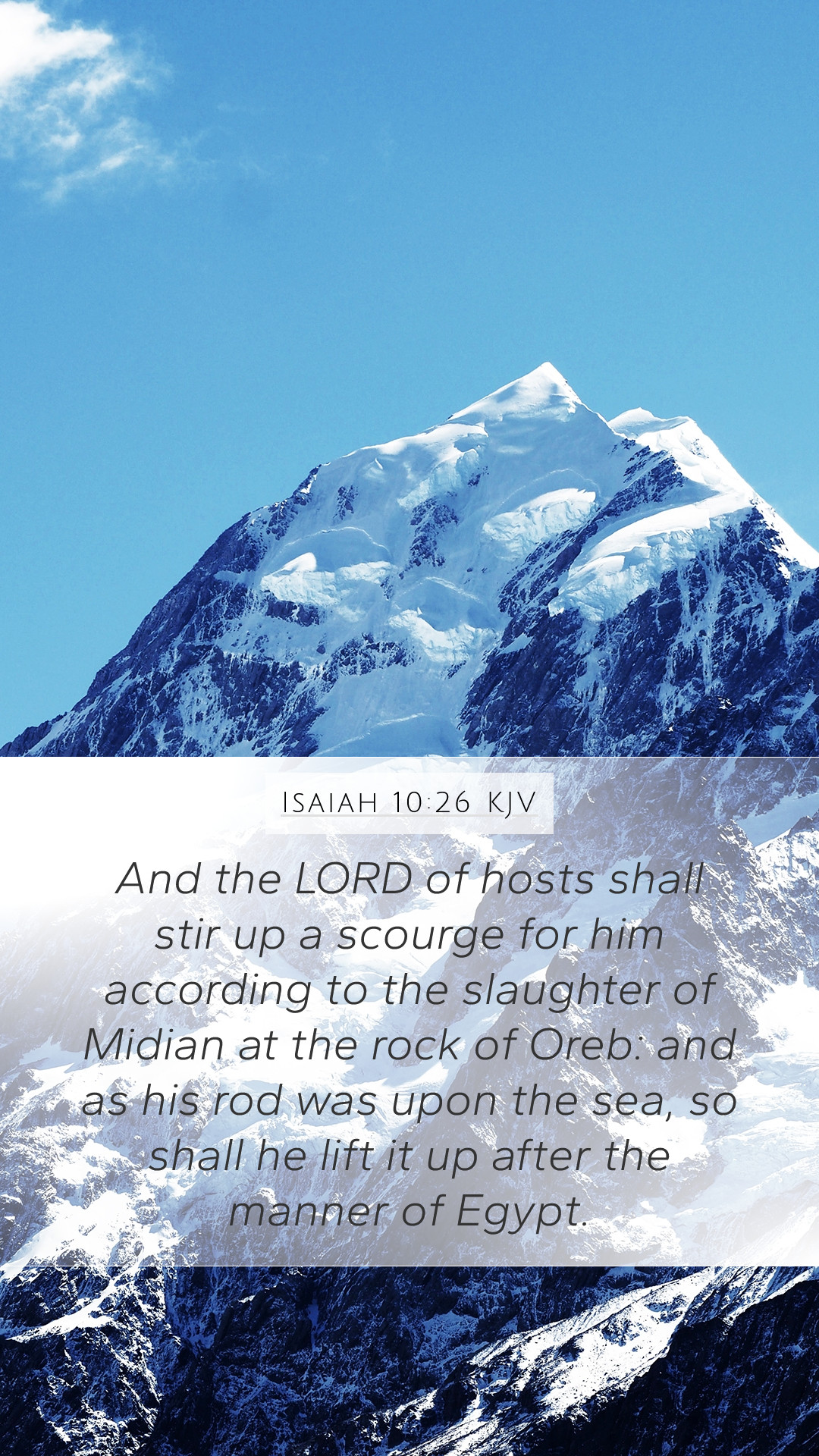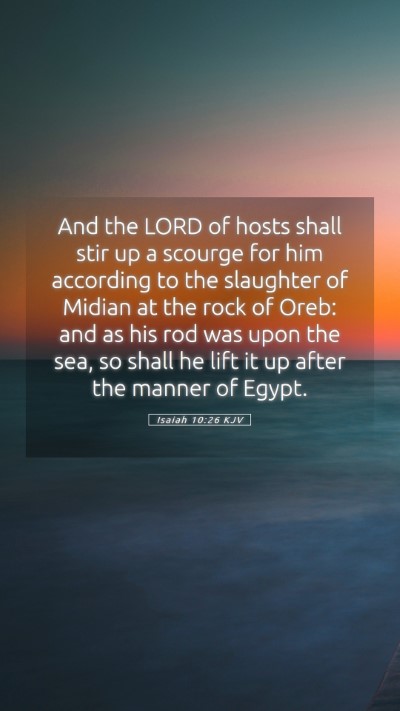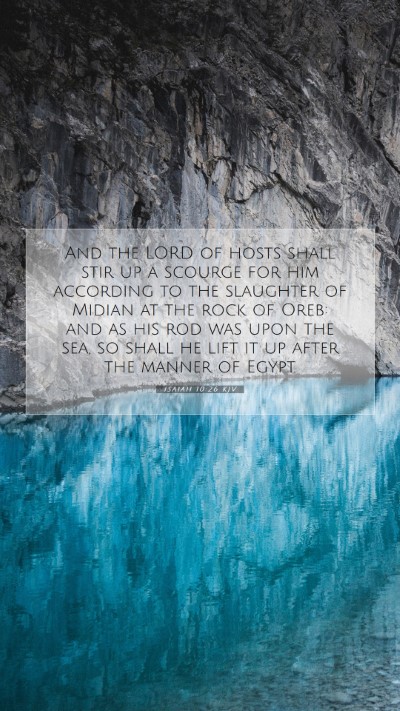Understanding Isaiah 10:26 - Bible Verse Commentary
Isaiah 10:26 states, "And the LORD of hosts shall stir up a scourge for him according to the slaughter of Midian at the rock of Oreb: and as his rod was upon the sea, so shall he lift it up after the manner of Egypt." This verse presents a profound insight into God’s judgment and deliverance, rich with historical context and implications for the people of God.
Summary of Insights from Commentaries
This brief exploration synthesizes interpretations from Matthew Henry, Albert Barnes, and Adam Clarke. Each contributor offers a unique lens through which to view this scripture, emphasizing themes of divine retribution, historical reminder, and spiritual application.
Matthew Henry's Commentary
Henry notes that this verse refers to God's upcoming judgment on Assyria, depicting Him as a general preparing for battle against His enemy. The "scourge" symbolizes both punishment and correction, much like how God previously dealt with the Midianites. The historical reference to the "slaughter of Midian" serves to remind us of the significant power of God in delivering His people from oppressors.
Albert Barnes' Commentary
Barnes elaborates on God’s power to deliver and protect His people, suggesting that just as God once defeated powerful foes, He is capable of doing so again. The "rod upon the sea" illustrates the might of God demonstrated during the exodus from Egypt, signifying that He will unleash similar divine intervention against the Assyrians in the same manner He did in the past. This serves as a powerful encouragement to the faithful not to lose hope in God’s sovereignty.
Adam Clarke's Commentary
Clarke emphasizes the metaphorical language used in this verse, relating the "scourge" to the rod of correction. Here, we see God's discipline of nations that have turned against Him. He draws parallels between the punishment of Midian and the future judgment awaiting Assyria, highlighting God’s unchanging nature and commitment to justice. This assertion also reminds the faithful of God’s enduring presence through their tribulations.
Key Themes and Applications
- Divine Justice: Isaiah 10:26 underscores the principle of divine justice. God actively punishes nations that act against His will, which serves as a reminder of His holiness and righteousness.
- Historical Reminders: The references to the Midianites and the exodus narrative remind readers of God's past victories and His ability to intervene powerfully in history.
- Encouragement in Trials: For contemporary believers, this verse serves as an assurance that God is still active and engaged in the affairs of nations and will bring about justice in His perfect timing.
- Symbolism of the Rod: The "rod" represents authority and discipline, indicating that God's interventions may come through correction and guidance, which ultimately lead to restoration.
In-Depth Biblical Exegesis
The passage invites readers to engage further through Bible study resources that delve into the historical background of the midianite conflict and its implications today. Understanding the context of wars in the Old Testament, their significance as divine judgment, and their reflections on human behavior enhances one's Bible study insights.
How to Interpret Bible Verses
When interpreting Isaiah 10:26, it is critical to consider the surrounding verses that provide context. Pay close attention to the themes of God’s sovereignty, the consequences of rebellion, and the promise of redemption for those who turn back to Him.
Cross-References
This verse aligns closely with several other passages that illustrate similar themes of divine judgment and deliverance:
- Judges 7:19-22: The story of Gideon defeating the Midianites, showcasing God’s power in deliverance.
- Exodus 14:21-22: God parting the Red Sea, highlighting His omnipotence and ability to save.
- Isaiah 37:36: The Lord’s angel striking down the Assyrian army, reiterating His protective nature over His people.
Further Study Topics
For those engaged in online Bible study, consider exploring:
- Historical context of the Assyrian empire in the Old Testament.
- Analysis of prophetic literature regarding judgment and hope.
- Practical applications of divine correction in personal faith journeys.
Conclusion
In summary, Isaiah 10:26 encompasses themes of divine judgment, historical reminders of God’s deliverance, and the promise of hope for those who trust in Him. Engaging with this verse through Bible study guides and Bible study lessons can enrich one’s understanding of God’s character and His plans for humanity.


